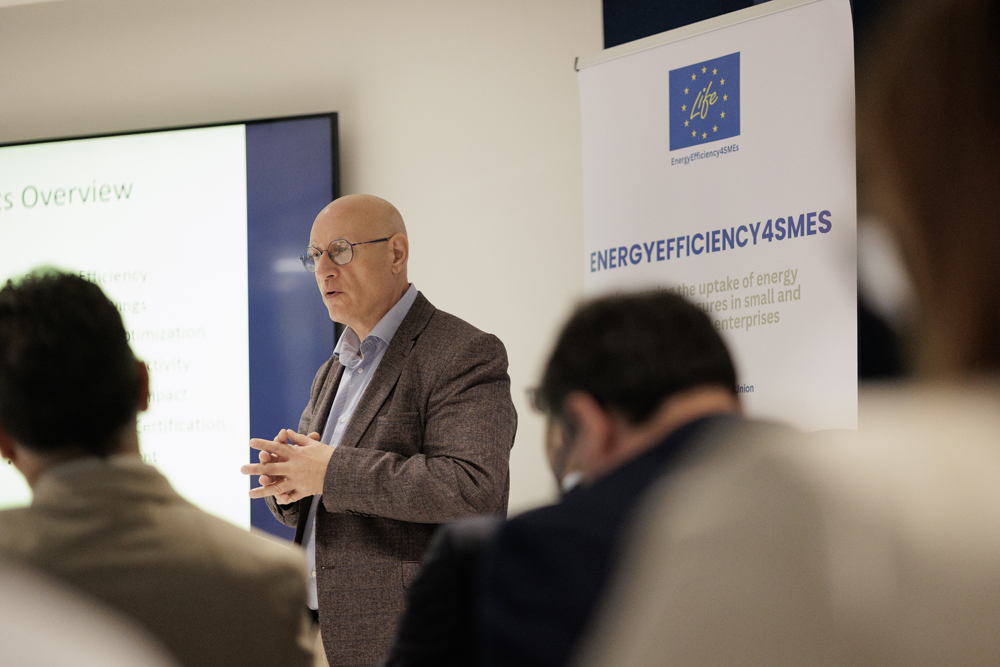

“Change must be embraced. The bigger the transition the more we should accept it, for it to be a success”, said Prime Minister Dr Robert Abela. The Prime Minister was addressing attendees during the launch of the ‘Maximising Energy Efficiency Through Building Renovation’, an HSBC case study which was a collaboration between The Malta Chamber of Commerce, Enterprise and Industry and the HSBC Malta Foundation.
Prime Minister Robert Abela underlined the significance of this project as a crucial stride towards advancing energy efficiency and conservation standards within Malta’s building and construction sector. Dr Abela underscored the government’s unwavering commitment to continue to enact legislation and foster incentives to facilitate the green transition. He emphasised the pivotal role of the financial sector, noting that banks can make a substantial impact by giving incentives to environmentally friendly buildings through their loan services. “The government welcomes suggestions on how to bolster the financial system’s support for the green transition”, elaborated the Prime Minister, highlighting this transition as the best economic opportunity for our generation.
Achieving Malta’s climate targets requires a transformative shift in the building and construction sector to ensure sustainable living and working spaces. This study lays the groundwork for such a transition, paving the way for future ambitious studies, policies, and strategies. The Prime Minister was given a tour of the building to showcase what type of investment and sustainable measures have been undertaken.
DOWNLOAD THE FULL DOCUMENT & ANNEX.
“HSBC Bank Malta is very proud to have supported and collaborated with The Malta Chamber on this ambitious 3-year ground-breaking project. This collaboration is testament to HSBC Malta’s climate change commitments. HSBC Bank Malta through the HSBC Malta Foundation is paving the way for more advanced research and policymaking and is leading the transition towards more sustainable Maltese buildings. This project sets a precedent locally, where data on utility usage and building efficiency has been scarce compared to other European countries. By featuring our new offices in Qormi, HSBC Hub, as a pivotal case study, HSBC is taking a leadership role in the transition to high energy efficiency and low-carbon office buildings in Malta. We have significantly invested in the transformation of the Qormi complex to turn it into a state-of-the-art office. With a capital investment of €30 million this project will now facilitate flexible working and maximise user experience – for employees and customers alike,” said Geoffrey Fichte, HSBC Malta CEO.
“The study we are presenting here today lays the groundwork for the sustainability transition. It charts a course towards a future where our buildings not only meet our present needs but also safeguard the environment for generations to come. By committing to this research project, we have positioned ourselves as pioneers in Malta, charting unprecedented territory and inspiring others to follow suit. This initiative is not just about meeting targets; it is about redefining our relationship with the environment and prioritizing the well-being of our country,” noted Chris Vassallo Cesareo, The Malta Chamber President.
In a recorded message by Ing. Abigail Cutajar, who headed this case study, said that renovating buildings and making them more energy efficient will contribute to a better economy, GDP and lifestyle. Ing. Cutajar emphasised that this project is meant to incentivise investors and private capitalists to truly understand the value of green buildings which will lead to a reduction in overall emissions.
Dr. Ing. Damien Gatt, during his presentation, said that other important elements, such as education, awareness, training and enhanced compliance, need to be considered to facilitate the transition to more sustainable buildings. “Despite the best assessment methods, updated documentation, and ambitious plans, financing remains pivotal. Public funds have a role, but the bulk must come from private investment, making favorable financing mechanisms from banks crucial. Meeting the EPBD targets requires substantial renovation efforts, however, current incentives are insufficient. We require additional financing mechanisms and a comprehensive green building package, accessible to all, to drive a successful energy transition,” he specified.
The key experts in this project were:
• Ing. Abigail Cutajar
• Dr. Ing. Damien Gatt
• Prof. Ruben P Borg
• Gabby Grech Larsson, Policy Executive (Sustainability), The Malta Chamber
...
...


...


...
